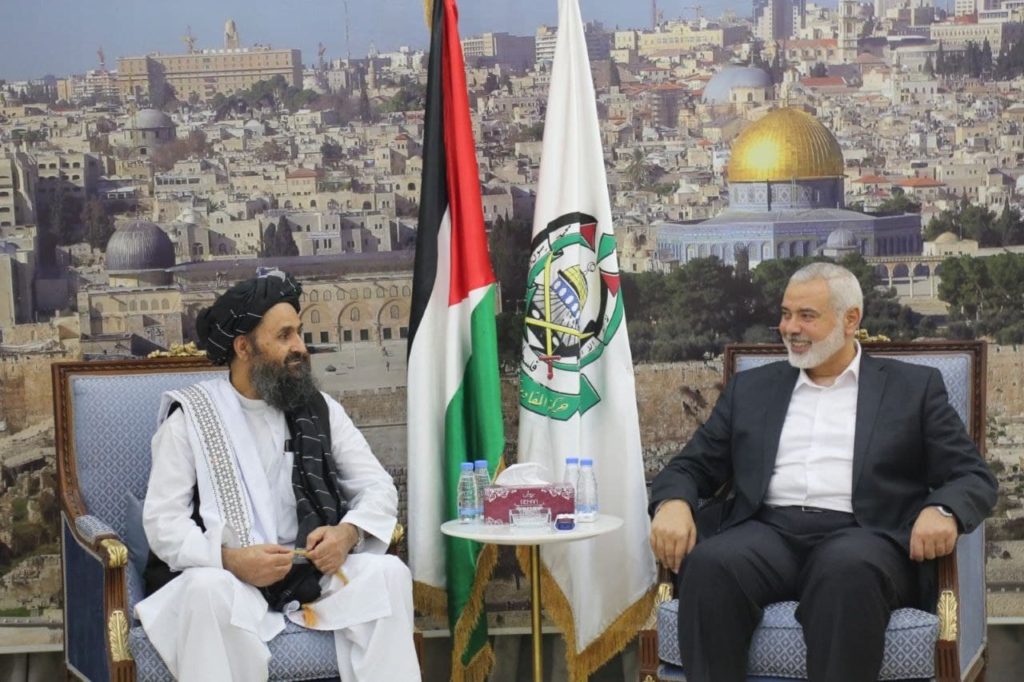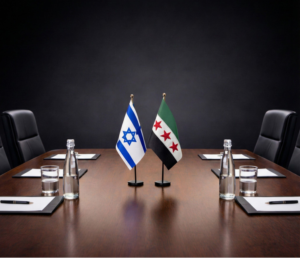The main headlines this week were the events in Afghanistan. Here in Israel, we watch them with concern. On the other side of the border, both Gaza and Lebanon already recognize an American weakness and link it to Israel:
Hezbollah’s secretary-general Nasrallah reacted to events in Afghanistan, saying, “The US has forsaken millions of desperate Afghans.. and if it has signed an agreement with the Taliban, it may even have betrayed them.”
Hamas leader in Gaza, Haniya, even called to congratulate the Taliban leader on his success in eradicating US occupation, adding:
“considering the demise of the occupation on Afghan soil is a prelude to the demise of all oppression forces and the forefront of the Israeli occupation of Palestine.”
The rest of the reactions in the Middle East were cautious. All the key players – Iran, Saudi Arabia, and Turkey are “sitting on the fence” in anticipation – what they can derive from the events in Afghanistan.
In the Middle East, the phrase “IF YOU CAN’T BEAT THEM JOIN THEM” Is official policy. Despite the Iranian fear of harming Shiites in Afghanistan, the Saudi fear of the United States abandoning its allies in the region, and the Turkish fear of more waves of refugees, none of these local powers were quick to condemn the Kabul takeover or the American withdrawal.
In their view – if the result is inevitable, then let’s see what we can get out of it.
The Taliban had an apparent goal – to regain control of Afghanistan, now it does so with a great deal of American equipment. And that brought me back to Hezbollah that is here across the border. Lebanon is also a failed state. How will the Lebanese army behave the day Hezbollah decides to take over Lebanon officially?
Half of the Lebanese army soldiers are Shiites – many of them from Hezbollah’s support base…
As an Israeli, I am very uncomfortable with apocalyptic predictions. Still, when I look at what is happening in Afghanistan, I am concerned about the ease with which an extremist ideology wins and brings a country into the dark days of oppression of women and the growth of terrorist cells.
The Taliban is one of a variety of murderous ideologies in our region – from Iran to Hamas. Sometimes they fight each other, but they cooperate against Israel and the United States in many cases. Policymakers in the United States must understand that in the end, what happens in the Middle East does not stay in the Middle East and September 11 is not a one-time event. It may repeat itself.
The Americans now face three critical tasks:
- Restore the confidence of their allies, so they will not fall into the hands of extremist regimes.
- To wage an uncompromising fight against terrorism, including preventing the formation of terrorist cells in Afghanistan. This includes managing a rigid line in the face of the Iranian nuclear project and supporting Israel in the fight against Hamas. And, of course – the continuation of sanctions on Hezbollah.
- The fight against the ideologies of terrorism does not end with military or financial assistance. Today, a side note caught my eye: 35% of Syrian refugee children do not attend school; this is about a million children. The key to victory over murderous ideologies is education: building schools, universities, job security, employee training. Lots of money can be invested in prosperity and building a future for these children who, when they grow up, will look for one crucial thing – respect. Instead of finding their place in the Taliban, following the ayatollahs in Iran, Hezbollah, Hamas, or ISIS – can find dignity in supporting their families.






